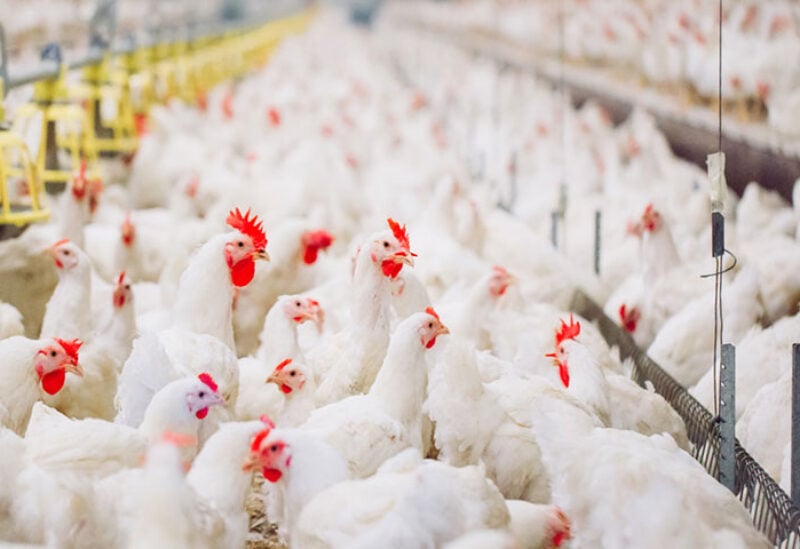
Poultry producers in Lebanon suffering from high production cost due to the fluctuation of dollar on the black market
The Central Bank of Lebanon has informed poultry producers that subsidies on poultry forage and parent imports has been lifted. This decision has laid burdens on producers and forced them to sell at cost. It also lead to a sharp increase in the price of poultry products. On the other hand, local poultry production has become more competitive than imported products, which fell by 80 percent in 2020 compared to its previous year.
80% of cost in dollars
The Head of the Lebanese Poultry Syndicate, Musa Freiji, said to “Sawt Beirut International” that traders and poultry farmers have paid fresh dollars for the feed and parent shipments that were imported in the last two weeks, without receiving any support from the Central Bank.
The prices of poultry products were subject to fluctuation because the Lebanese pound has tumbled against dollar. Freiji added that imported raw material and supplies including parent, feed, vitamin, vaccines, and disinfectants, which are paid in fresh dollars, represent about 80 percent of the poultry’s cost. While the operational costs that are paid in the local currency represent only 20 percent of the cost, although the majority of the companies have provided up to 50 percent salary raises. These factors have contributed in raising the prices in parallel with dollar exchange rate on the black market, according to Freiji.
Selling at cost
The poultry sector has been suffering, as several obstacles have accompanied producers since the beginning of the economic and monetary crisis in August 2019. Secretary of the Lebanese Poultry Syndicate William Boutros said to ‘Sawt Beirut International’: “Producers were selling poultry products for a one year and until August 2020 at prices less than their cost, because raw materials weren’t subsidized despite the drop in the value of lira.” During this period, egg production decreased by 50 percent, and chicken by 30 percent. However, demand surged after subsidizing feed and parents at the rate of 3,900 pounds, and mainly after adopting the prices imposed by the Ministry of Economy and Trade. In this context, Boutros explained that the lower prices of poultry products compared to red meat has led to an unprecedented rise in demand from consumers. It is noteworthy that Lebanon’s poultry production amounts to about 100 million chicken per year.
However, challenges exacerbated with the 70 percent increase in global grain prices, which is the main component of bird feed, as well as the drop in the Lebanese pound, which tumbled against dollar from 8,000 thousand to 12,000 LBP, which exacerbated the situation and led to a significant increase in the prices of eggs and chicken products.
Subsidies or tariff raise
Based on this reality, the Syndicate called for re-activating the subsidies on poultry sector that are estimated at $120 million annually. “The subsidies should be restored to save a sector that employs about 20,000 families, and fulfill the market needs from protein,” said Boutros. “If it is impossible to continue subsidizing the sector In that way, then we call on concerned authorities to take the protective measures by adjusting the customs tariff and return it to its actual value that was in place before the currency’s collapse.” Imported poultry products dropped by 80 percent from $ 13.5 million in 2019 to $ 2.8 million last year, according to Lebanese customs. This has made local products more competitive. But Boutros said: “The current customs duties does not secure the state’s financial revenues nor protect the productive sectors.”